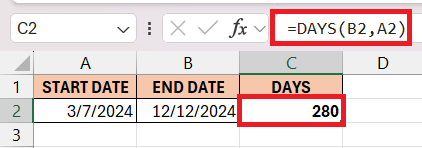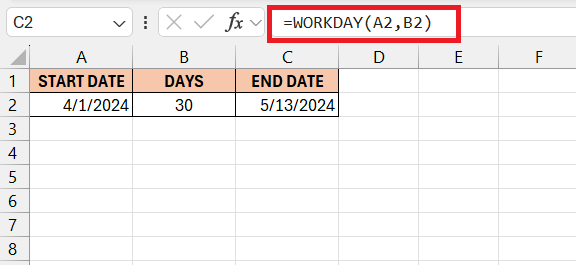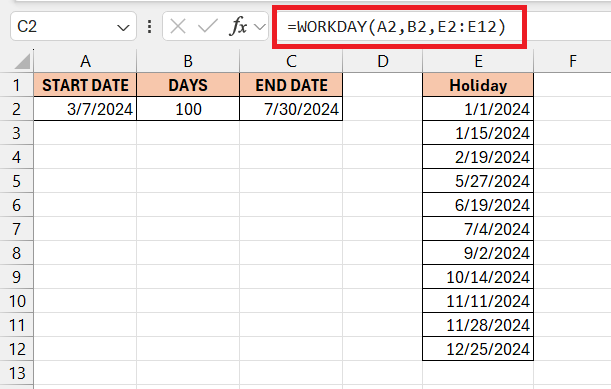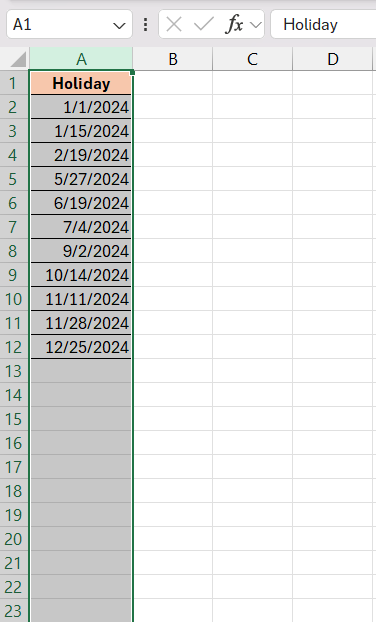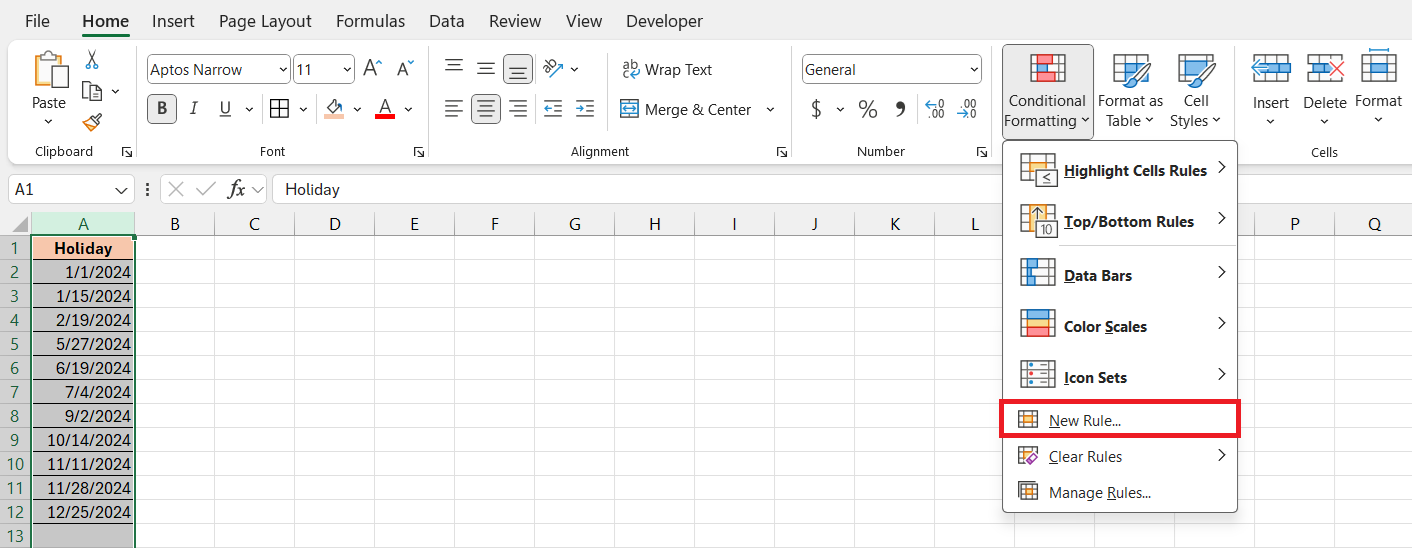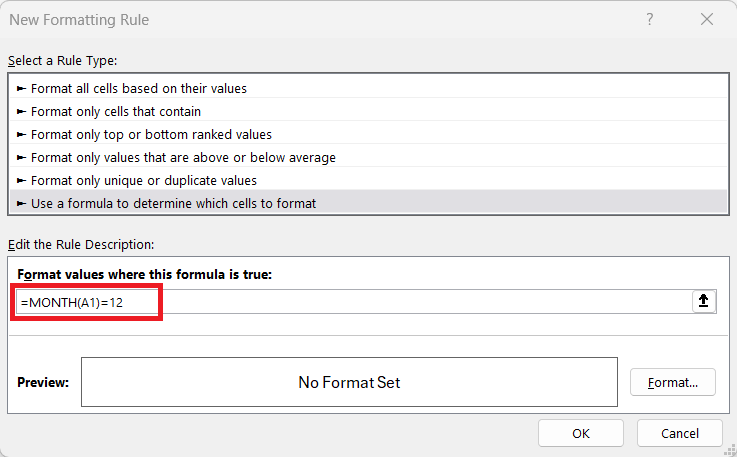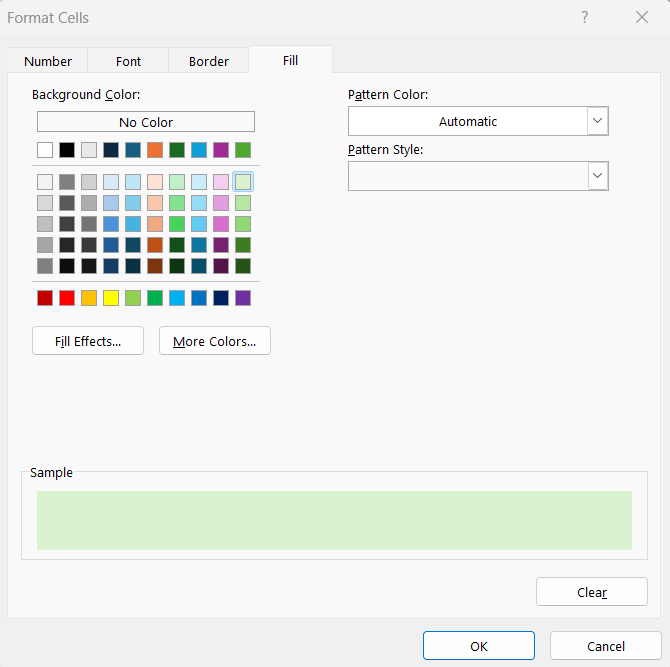Mastering date calculations in Microsoft Excel is essential for enhancing productivity across various tasks such as tracking project deadlines, planning schedules, and calculating how many days until december. Excel’s comprehensive suite of date functions, including TODAY, DATE, YEAR, MONTH, and DAY, enables users to perform complex calculations effortlessly, ensuring accuracy and efficiency in their work.
Key Takeaways
- Excel’s date functions like TODAY, DATE, YEAR, MONTH, and DAY are fundamental for efficient date and time management, allowing for a wide range of operations with ease.
- The DAYS function is invaluable for calculating the number of days between two dates, simplifying period calculations, and aiding in countdowns.
- DATEDIF extends Excel’s capabilities by enabling the calculation of differences in days, months, or years between two dates.
- WORKDAY and WORKDAY.INTL functions are crucial for calculating business days, taking into account weekends and holidays, essential for project planning and scheduling.
- Excel’s conditional formatting can be used to highlight key dates or date ranges, such as days occurring in December, enhancing visibility and aiding in efficient decision-making.
Download the spreadsheet and follow along with the blog on How many days until December in Excel – Download excel workbookHow-many-days-until-December.xlsx
Table of Contents
Introduction to Mastering Dates in Excel
The Importance of Date Calculations in Excel
Understanding how to calculate dates in Excel is a fundamental skill that can enhance your productivity tremendously. Whether you’re tracking project deadlines, counting down to a special event, or planning out schedules, Excel’s date functions provide the precision and automation to make it all a breeze.
An Overview of Functions for Managing Dates
Excel offers a robust toolkit for managing dates with built-in functions that can handle everything from simple date entries to complex calculations. Familiarizing yourself with functions like TODAY, DATE, YEAR, MONTH, and DAY is crucial to harness the full potential of Excel’s date and time management capabilities.
- TODAY: Fetches the current date, updating dynamically each time the workbook is opened.
- DATE: Creates a date using separate year, month, and day values.
- YEAR, MONTH, and DAY: Extracts the year, month, or day part from a given date.
By mastering these functions, you can perform a wide range of date-related operations with just a few keystrokes, ensuring accuracy and efficiency in your spreadsheets.
Unveiling the DAYS Function: Countdown to December
How the DAYS Function Works and Its Syntax
The DAYS function in Excel is your go-to for calculating days between two specific dates. It simplifies period calculations and ensures that you’re not left scratching your head over date differences.
Here’s how it operates:
Syntax: =DAYS(end_date, start_date)
end_date(Required): The date until which the calculation is made. It can be a date string, a cell reference containing a date, or a DATE function.start_date(Required): The starting point of the period you’re measuring.
Remember, the order is crucial; flipping the start and end dates will yield a negative number, indicating the number of days the start date precedes the end date.
By ensuring your dates are in the correct format, you can leverage the DAYS function to calculate how many days until December 12.
Beyond DAYS: Other Functions to Explore
DATEDIF – A Quick Glance at Differences Between Dates
The DATEDIF function in Excel is a versatile tool that goes beyond counting days. With this function, you can calculate the difference in months, years, or a combination of units between two dates.
Here are the basics of using DATEDIF:
Syntax: =DATEDIF(start_date, end_date, "unit"): The initial date of the period you’re examining.
end_date: The final date you’re comparing against."unit": The measurement of time difference, presented in quotes. Here are the key units:"Y": Difference in complete years."M": Difference in complete months."D": Difference in days."YM": Months excluding years."YD": Days excluding years.
This function will help you to calculate how many days until December 12 in Excel. The result will be displayed in column C.
Unlike many Excel functions, DATEDIF might not show autocomplete hints, so it’s essential to remember the order and type of arguments to use it effectively.
WORKDAY – Calculating Business Days with Precision
The WORKDAY function is indispensable when calculating business days, especially when weekends and holidays must be excluded from the count. This functionality is essential for project planning, delivery time estimates, and scheduling deadlines in a corporate environment.
Here’s how to apply the WORKDAY function:
Syntax: =WORKDAY(start_date, days, [holidays])start_date: The date from which the calculation starts.
days: The number of working days to add (positive) or subtract (negative).[holidays]: An optional range of dates that should be excluded from the working days count, in addition to weekends.
The standard WORKDAY function considers Saturday and Sunday as the weekend, but if your weekends fall on different days, use the WORKDAY.INTL function to specify custom weekends.
For example:
- To find the date 30 business days from April 1, 2024:
=WORKDAY(A2,B2)
- To calculate 100 working days from today, excluding holidays listed in the range E2:E12:
=WORKDAY(A2, B2, E2:E12)
These formulas are convenient in business scenarios where timelines are critical.
Harness the Power of Conditional Formatting
Custom Rules for Highlighting Key Dates
If you need to differentiate specific dates or date ranges for key events or milestones, Excel’s conditional formatting allows you to establish custom rules tailored to your needs. Follow the steps below to highlight days occurring in December –
STEP 1: Select the cells with dates you wish to highlight.
STEP 2: Navigate to ‘Home’ > ‘Conditional Formatting‘ > ‘New Rule.
STEP 3: Choose ‘Use a formula to determine which cells to format’. Enter a formula below to highlight days in December.
=MONTH(A1)=12
STEP 4: Click ‘Format’, pick your formatting preferences, and then ‘OK’.
The days that fall in December i.e. Christmas Day will be highlighted in light green color.
By setting up custom rules, you can instantly make important dates stand out, aiding in efficient decision-making and organization of your calendar-related tasks.
Real-world Applications of Date Calculations
The real-world applications for precise date calculations in Excel are extensive and varied across different sectors:
- Project Management: Excel is used for calculating project timelines, setting milestones, and tracking deliverables with functions like “DAYS,” “WORKDAY,” and “EDATE.”
- Finance: In finance, Excel helps in projecting investment maturities, payment schedules, and fiscal quarter closures using “DATE,” “MONTH,” and “YEAR” functions.
- Human Resources: HR professionals rely on Excel to track employee attendance, calculate tenure, assess leave accruals, and manage payroll periods.
- Events Planning: Events planners utilize date functions to manage event countdowns, venue booking periods, and vendor contract dates.
- Academics and Research: Educators and researchers use date calculations for scheduling classes, tracking assignment deadlines, and managing grant timelines.
Mastering date calculations in Excel ensures you have the tools to handle scheduling, forecasting, and tracking tasks crucial in today’s data-driven work environment.
FAQs on Excel Date Calculations
What Exactly Is the DAYS Function in Excel?
The DAYS function in Excel calculates the number of days between two dates. It’s a straightforward formula with the syntax =DAYS(end_date, start_date), where end_date is the date up to which you are counting days, and start_date is the date from which you begin counting. It is especially useful for tracking project deadlines, calculating interest periods, or counting down to a specific event.
How Can I Calculate Working Days Excluding Weekends and Holidays?
To calculate working days excluding weekends and holidays, use the NETWORKDAYS function. The basic syntax is =NETWORKDAYS(start_date, end_date, [holidays]). The start_date and end_date are required, and [holidays] is an optional argument where you can input a range of dates that should not be counted as working days.
Are There Any Shortcuts for Swifter Date Calculations in Excel?
Yes, Excel offers several shortcuts for swifter date calculations. For instance, you can use “Ctrl + ;” to insert the current date into a cell instantly. Also, “Ctrl + Shift + ;” enters the current time. Using the fill handle with a date selected can quickly extend a series of dates. For repeated calculations, you can also copy formulas across cells.
How do you calculate how many days until a date in Excel?
To calculate how many days are left until a specific date in Excel, use the formula =(specified_date-TODAY()). Replace specified_date with the target date. Ensure the cell with the formula is formatted as a number to display the result as a number of days remaining.
How do you calculate days from dates in Excel?
To calculate the number of days between two dates in Excel, simply subtract the earlier date from the later one, like =later_date - earlier_date. Ensure both dates are in a date format and the cell for the result is formatted as the General or Number format to display the difference in days.
John Michaloudis is a former accountant and finance analyst at General Electric, a Microsoft MVP since 2020, an Amazon #1 bestselling author of 4 Microsoft Excel books and teacher of Microsoft Excel & Office over at his flagship Academy Online Course.
